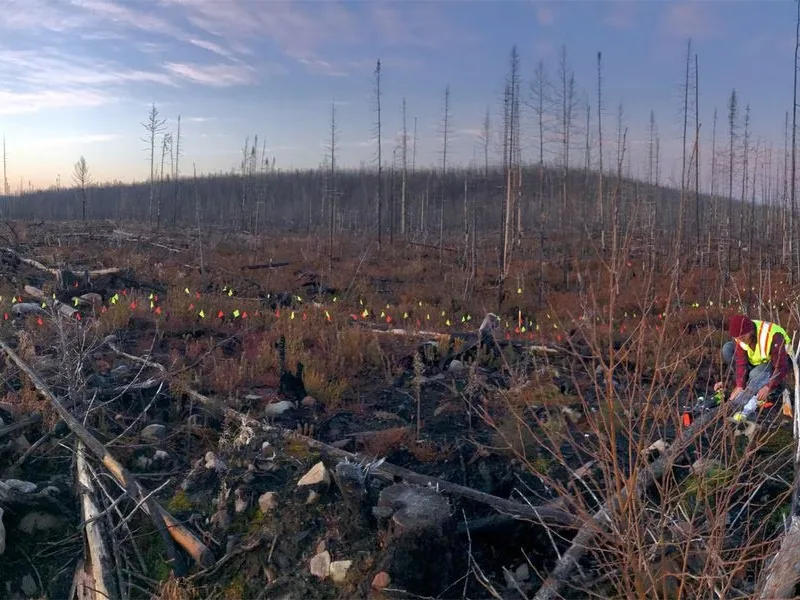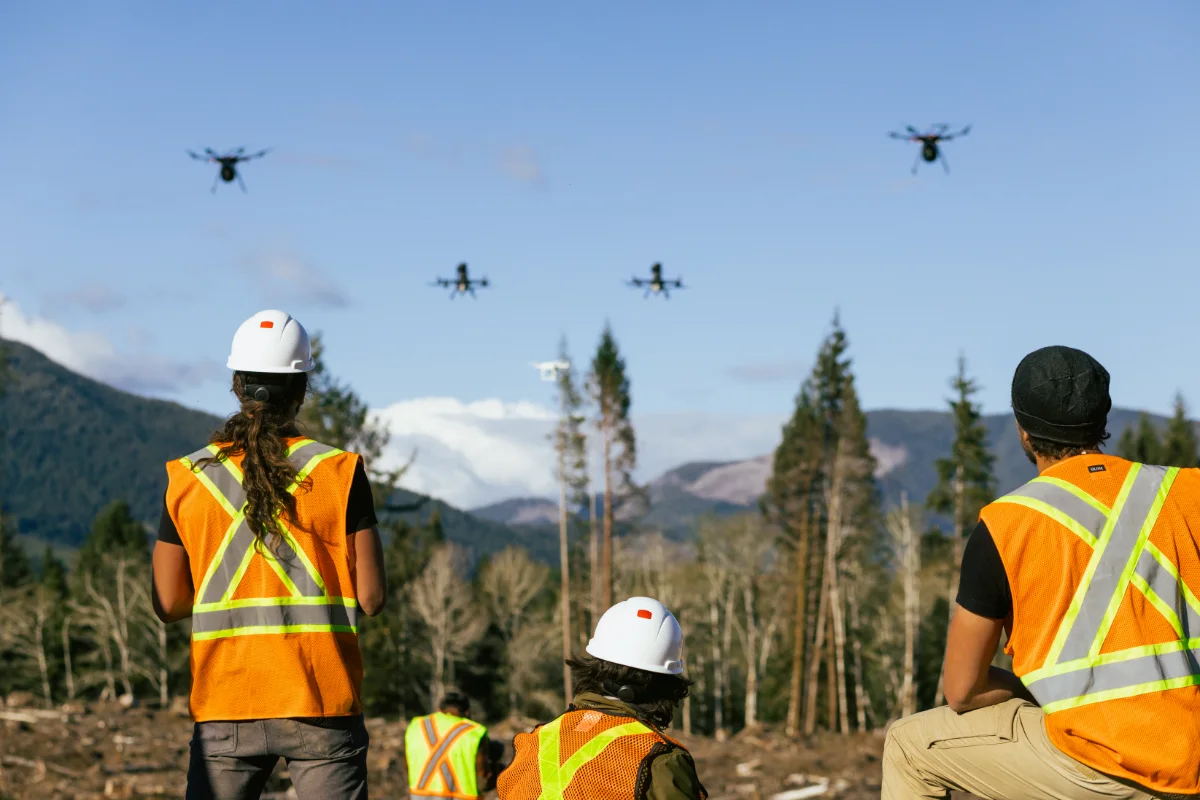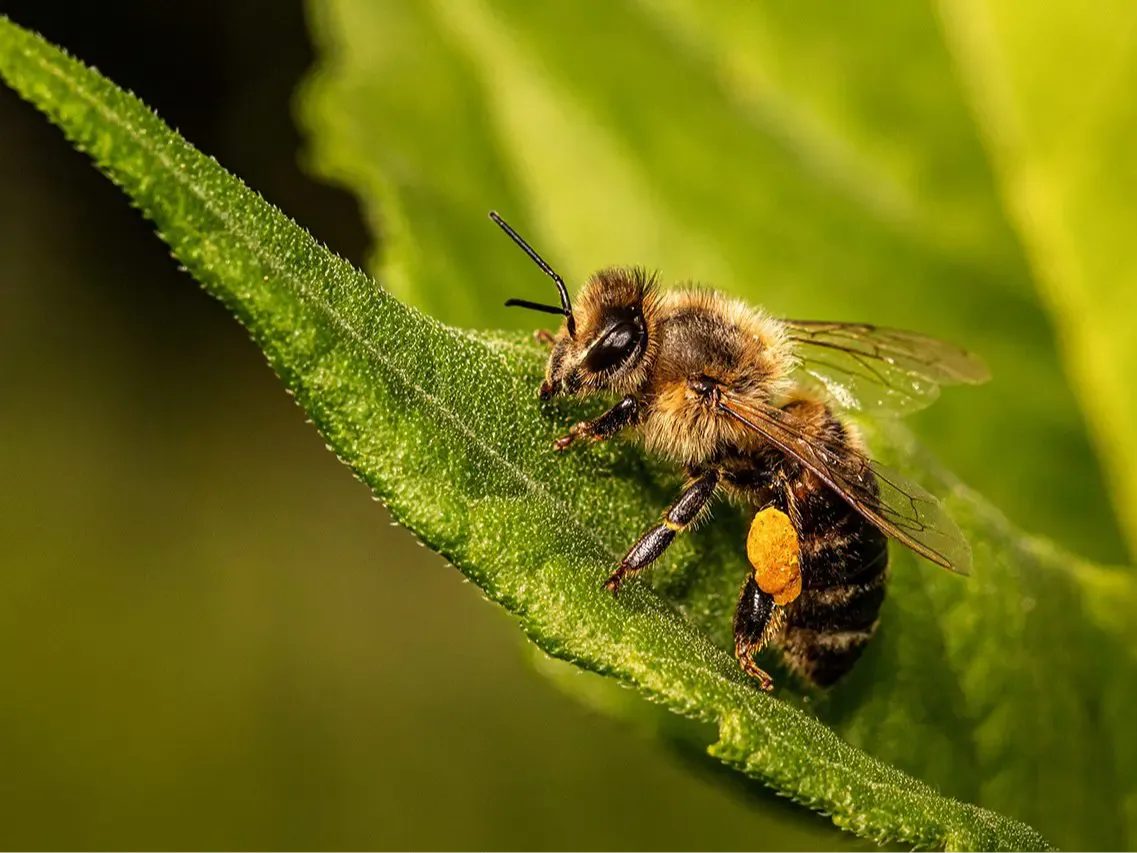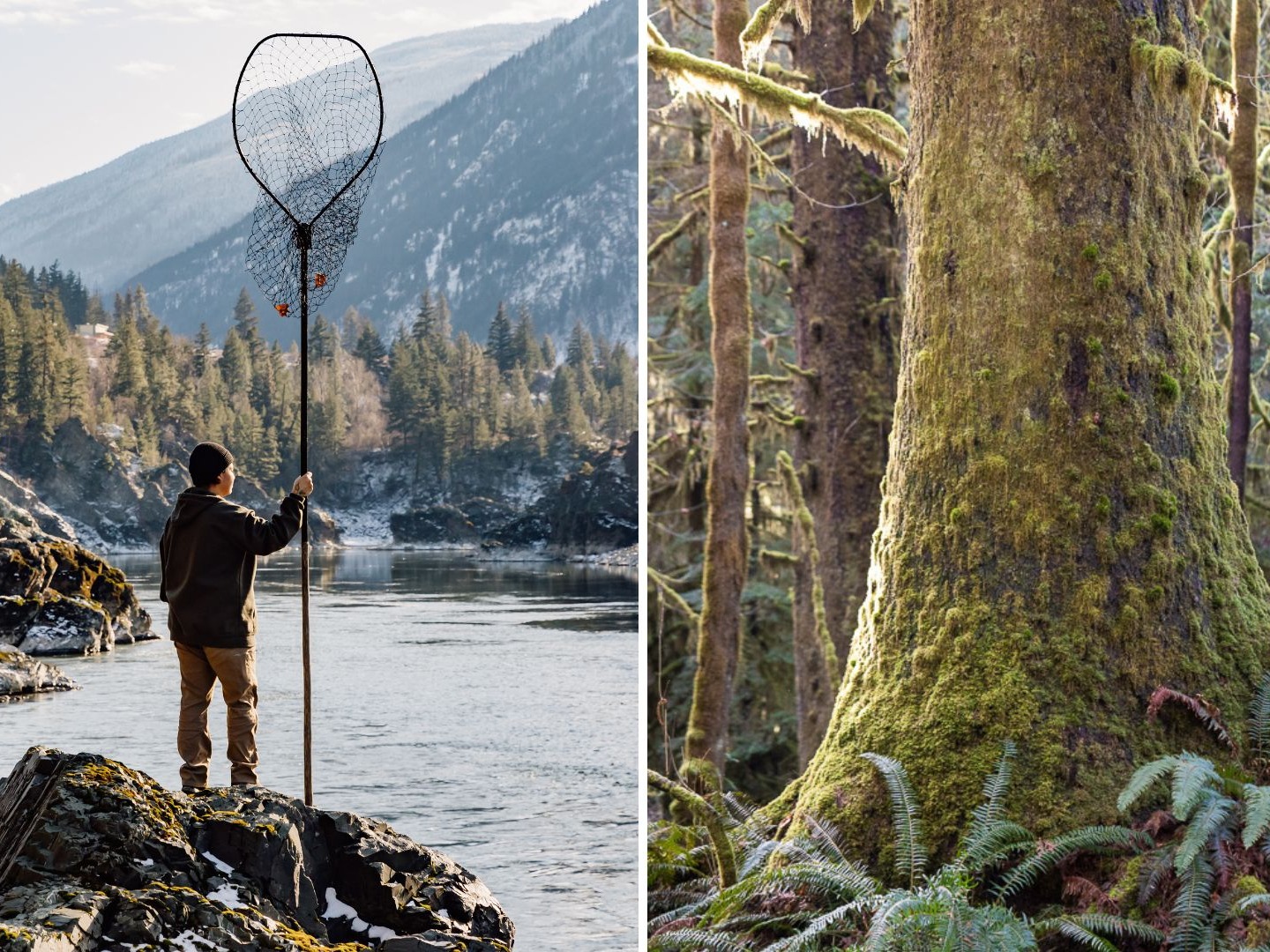
Environment
Canadian startup plants new forests in a flash
Jul 7, 2023
Canadian startup
Flash Forest
’s name says a lot about its mission.“It’s a forest, in a flash,” says Bryce Jones, the Toronto-based company’s chief executive officer.
Founded in 2019 by Mr. Jones, his brother Cameron Jones and Angelique Ahlström, Flash Forest uses specially designed drone technology that brings innovation to the reforestation industry. The drones fire proprietary seed pod technology at high velocity into the soil. Operated remotely, the drones can cover large swaths of wilderness that have been ravaged by wildfire, planting trees more easily in difficult terrains and five times faster than traditional methods.
“Right now, reforestation is pretty much done by people with shovels and bags of seedlings, but hand techniques can be unsafe following a wildfire,” says Mr. Jones.
Critically, Mr. Jones and his co-founders’ vision goes beyond changing forestry.
“We wanted to start a company with a large, scalable environmental impact, specifically mitigating climate change and preserving biodiversity.”
Its founders are not the only ones who want to leverage Flash Forest’s technologies. The company is gaining momentum with major partners committed to accelerate reforestation and combat climate change. The startup is working with the Federal government to help deliver on the Canadian government’s reforestation goals through the
2 Billion Tree Commitment
and has recently closed an $11.4-million series A raise co-led by the TELUS Pollinator Fund
.“Flash Forest directly supports one of our key investment theses in caring for our planet,” says Blair Miller, managing partner of the TELUS Pollinator Fund. “We are excited to invest in Flash Forest as they address the impact of climate change using technology to help regenerate forests devastated by wildfire.”

The vicious cycle of wildfires
As part of TELUS’s ongoing commitment to
social capitalism
, the TELUS Pollinator Fund has deployed about $40-million so far, investing in for-profit startups, companies, and founders committed to driving innovation and transformative solutions that make the world a better place. The investment in Flash Forest is one of eight climate-tech investments the fund has committed out of a total 26 since November 2020.The reason, Mr. Miller says, is clear: “Climate change is one of the world’s most critical challenges.”
More frequent, severe wildfires are a symptom of an overheating planet.
“It’s a vicious cycle,” he explains. “As you get more fires, that accelerates deforestation, fuelling further climate change and negative impacts, which include more frequent and severe wildfires.”
A 2022
study
from the University of Maryland illustrates this growing threat, noting forest fires now burn nearly twice as many trees than 20 years ago.“Forest fires have always been part of the life cycle of forests,” Mr. Jones explains. “But they generally didn’t wipe out entire forests like they do today.”
Because wildfires are larger now, due to more frequent extreme heat waves and drought, they burn hotter. As a result, seeds in the soil – previously spared in wildfires of the past and necessary for natural regeneration – burn too, he adds.
When combined with deforestation by urbanization and timber harvesting by industry, wildfires threaten one of the world’s best defenses against climate change, given that forests absorb
16 billion metric tonnes
of carbon annually – about 30 per cent of global emissions
. Yet deforestation, especially from wildfires, is also a source of emissions, releasing about 1.76 billion metric tonnes globally
, according to the European Union’s Copernicus Atmosphere Monitoring Service.“Increasing reforestation immediately after wildfire burn is an obvious solution that Flash Forest can be part of,” Mr. Jones says.
Save the world’s forests
Flash Forest’s technology has already shown success in early planting sites across Canada, planting a variety of native species, which is key, Mr. Jones explains. “When you have a biodiverse forest, it’s much more resilient to fire and disease.”
Using drones, Flash Forest can plant trees in more difficult terrain, he says. “We can plant quickly after fires when the soil is most fertile without competitive grasses and shrub species, and when it’s also often too dangerous for people to do it because of falling, damaged trees.”
That said, Flash Forest’s goal is not to supplant the tree-planting industry. Its market is climate-forward corporations and government entities seeking to address deforestation from wildfires and maintain biodiversity.

Count TELUS among Flash Forest’s client list, too, with a multi-year, commercial agreement to provide drone-planted trees for their customers.
Mr. Miller says this alliance highlights the exceptional assets of corporate impact investors. “The TELUS Pollinator Fund is uniquely positioned to unlock the capabilities of TELUS to further scale sustainable solutions, like reforestation technologies.”
Both the investment in Flash Forest and TELUS’ recent achievement of
planting one million trees
– enough to cover 15,000 football fields – highlight the company’s evolution as a leader in social capitalism over the last 20 years, led by its CEO Darren Entwistle.What began as corporate philanthropy in the 2000s is much more wide-ranging today, from the
TELUS Friendly Future Foundation
®, which supports the well-being of youth, to the TELUS Pollinator Fund to a commitment to be net zero by 2030, Mr. Miller says. “At TELUS, ‘doing well by doing good’ is something we absolutely believe in.”That belief is exemplified by the TELUS Pollinator Fund’s aim, “to nurture Canada’s impact investing ecosystem by investing in companies like Flash Forest, that generate revenue by doing good.”
Of course, turning a profit is good for Flash Forest. Yet it is only a byproduct of a more important mission. “Our goal is to have the maximum benefit on the environment by planting one billion trees,” Mr. Jones explains.
“We’re going to take this company global to help save the world’s forests.”
As seen in
The Globe and Mail


